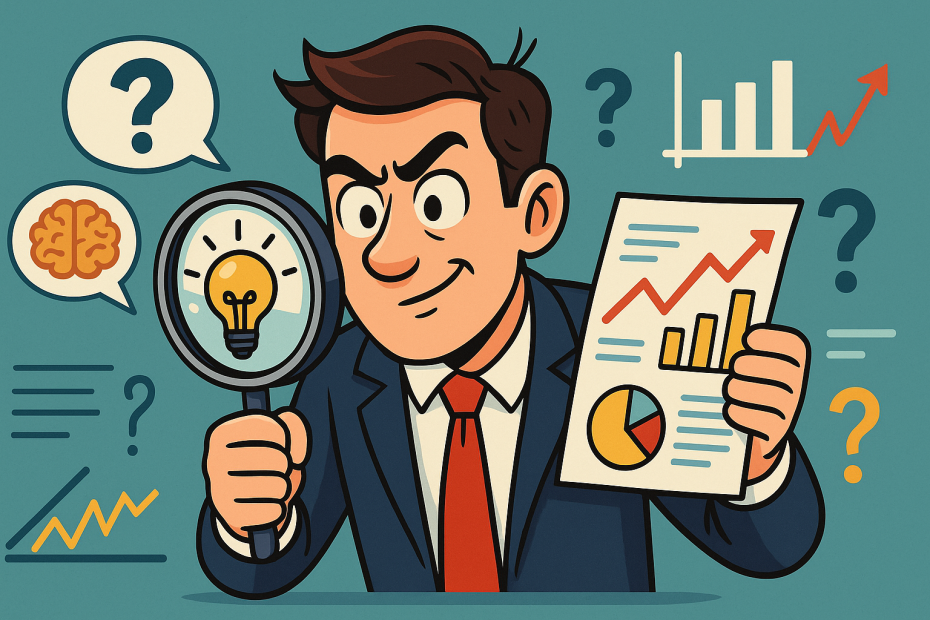You already think you’re a critical thinker—after all, you once spotted that one plot hole in Game of Thrones before your friends. Congratulations, detective. But here’s the deal: spotting a Starbucks cup on the set doesn’t exactly prepare you for separating fact from fiction in the real world. Critical thinking is less “Sherlock Holmes in a cape” and more “daily survival kit against nonsense.”
Now buckle up. We’re about to walk through the stages of building your critical thinking muscles. Spoiler: it’ll involve less yoga, more “Why is this headline yelling at me in all caps?” moments.
Realizing That Thinking Isn’t the Same as Critical Thinking
Here’s where you admit it—you think all the time, but that doesn’t mean you’re doing it well. If thinking were a sport, most of us are still at toddler level, eating the soccer ball.
Critical thinking isn’t just “having opinions.” It’s about pausing before reposting that meme that claims drinking celery juice cures all diseases. It’s about asking: Who said this? Why should I trust them?
Spotting the Red Flags of Bad Logic
Now you’re training your brain like it’s competing in the Olympics of sanity. You’ll start noticing logical fallacies everywhere. Politicians, influencers, your one uncle on Facebook—they’re all guilty.
You’ll see arguments that sound like: “If you don’t buy this $99 crystal, your aura will implode.” That’s called a scam. Or “Everyone’s doing it, so it must be right.” That’s called middle school peer pressure with better branding.
Developing Your Inner “Why?” Machine
Children ask “Why?” until adults snap. You’re about to reclaim that annoying superpower. Every claim gets a “Why?”—preferably five of them in a row.
Friend: “This supplement boosts brain power.”
You: “Why?”
Friend: “Because it’s natural.”
You: “Why does natural mean effective?”
Friend: confused silence.
Congratulations—you’ve just out-questioned a marketing campaign.
Learning That Google Is Not a Magic Oracle
Sure, the internet is great, but it’s also where someone once convinced people the Earth is flat… again. Searching isn’t critical thinking; evaluating sources is.
Red flag: A medical article authored by “HotFitnessGuru69” on a forum with blinking ads. Green flag: A peer-reviewed journal, even if it makes your head hurt.
Think of it like online dating—you need to check credibility before committing. Otherwise, you’re just one bad click away from believing that toothpaste cures depression.
Practicing in the Wild (a.k.a. Thanksgiving Dinner)
Ah yes, the ultimate battlefield: family gatherings. Here’s where you test your shiny new skills. Uncle Bob says, “The moon landing was fake.”
Instead of rage-quitting dinner, you calmly ask: “Interesting. What’s your evidence?” He points to a blurry YouTube video. You counter with NASA records and independent verification. Cue awkward silence and a quick subject change to mashed potatoes.
This is critical thinking in real life—staying calm, asking for proof, and avoiding the urge to throw cranberry sauce.
Leveling Up With Reflection
Now you’re not just busting myths—you’re reflecting on your own thought process. Self-awareness is like installing antivirus software in your brain.
You notice when you jump to conclusions. You realize your personal biases (yes, even you have them). And you start catching yourself before making decisions based on “gut feelings” alone.
Becoming the Friend Everyone Both Loves and Fears
Here’s the final stage: you’re now the designated “myth buster” in your circle. People come to you for advice but also hesitate to tell you their latest conspiracy because you’ll dissect it like a frog in biology class.
The good news? You’re saving them from scams, bad decisions, and embarrassing Facebook posts. The bad news? You’ve officially become That Person at parties. But hey, better that than gullible Gary.
Top Critical Thinking Skills You Need Today
- Question assumptions before accepting claims
- Spot logical fallacies and flawed arguments
- Evaluate credible sources, not clickbait
- Ask “why” relentlessly to uncover truth
- Reflect on personal biases before deciding
The Grand Finale: Congratulations, Brain Warrior
You’ve survived the crash course in thinking like a professional skeptic. Here’s the kicker: your prior skills—memorizing trivia, winning debates, quoting Netflix shows—help, but they’re not enough. True critical thinking requires constant practice.
So keep questioning, keep fact-checking, and keep your sarcasm sharp. And remember: if something sounds too good to be true, it probably belongs in a late-night infomercial.
Critical thinking isn’t about winning arguments. It’s about not being the person who falls for “limited-time offers” that have been running since 2004.
If you enjoyed sharpening your brain against nonsense, follow my Pinterest profile for more insights on thinking critically—without letting marketing, memes, or Uncle Bob’s conspiracy theories win.

Cassandra Toroian is a sports-tech entrepreneur and CEO/co-founder of Ruley, the AI “e-referee” serving tennis, pickleball, padel, golf, and soccer. With 25+ years building companies—and a background in finance (MBA) plus Python training—she’s also co-founder of Volleybird and author of Don’t Buy the Bull. A former Division I tennis player, she’s focused on using AI to make sport fairer and more accessible.

